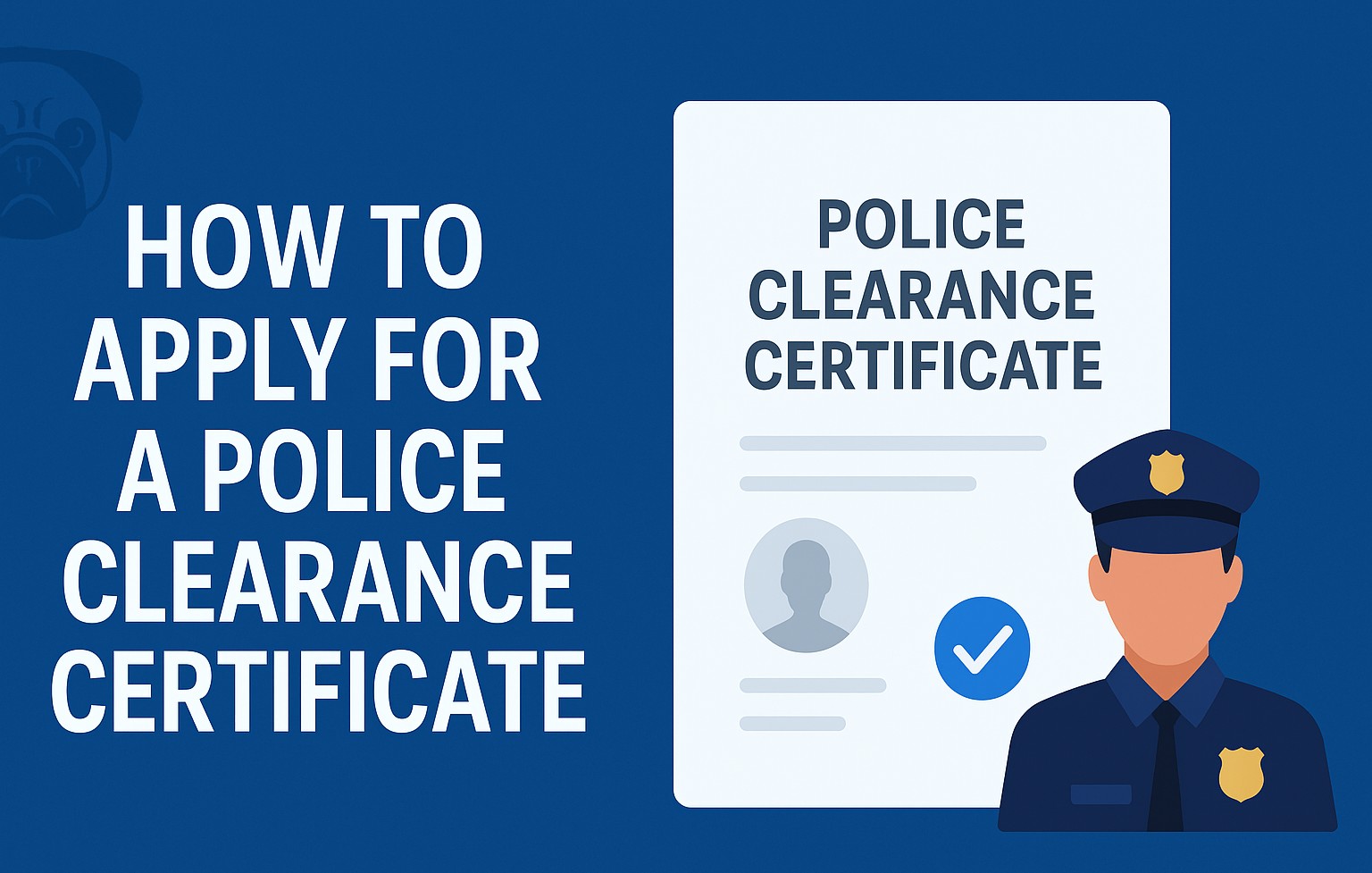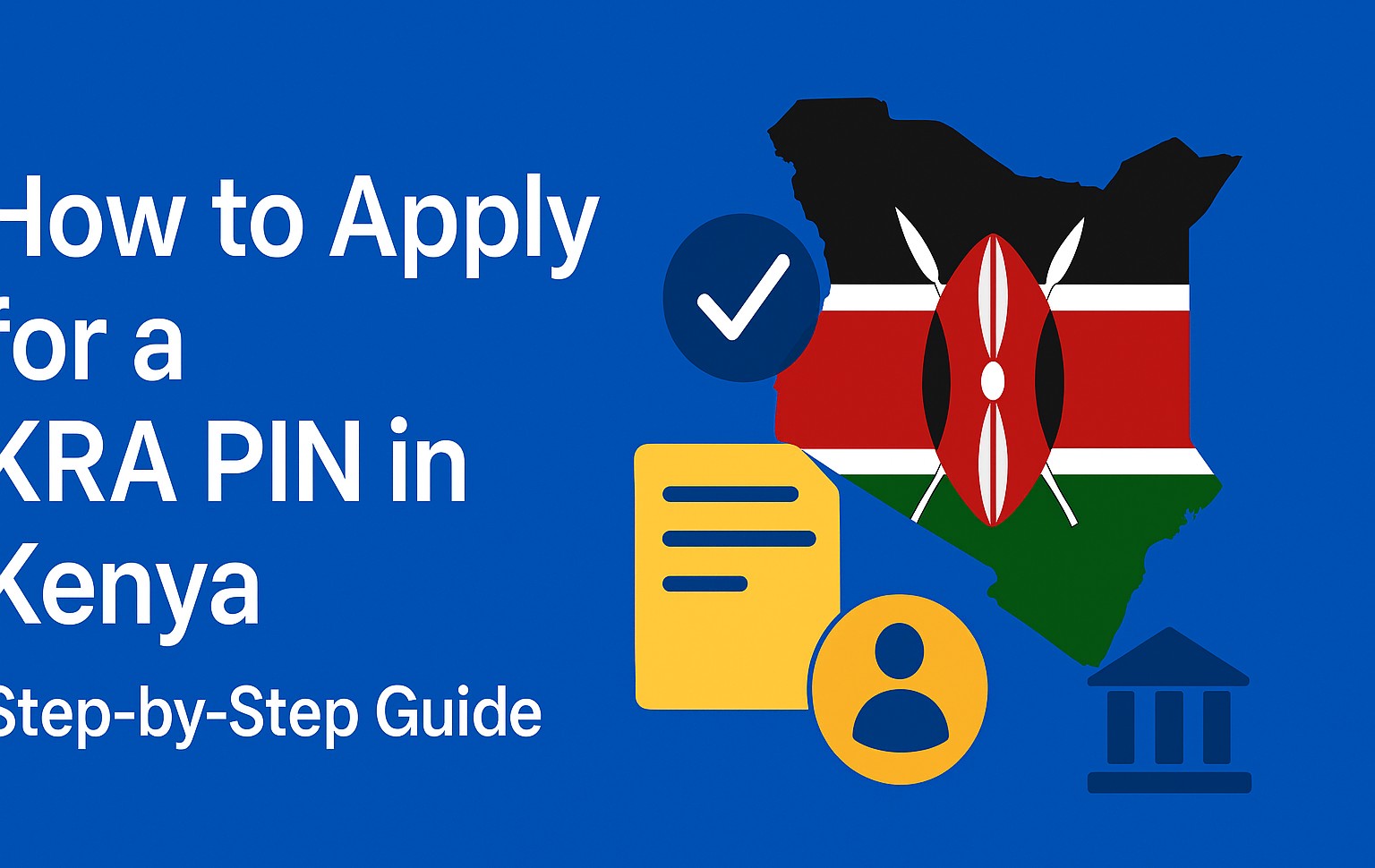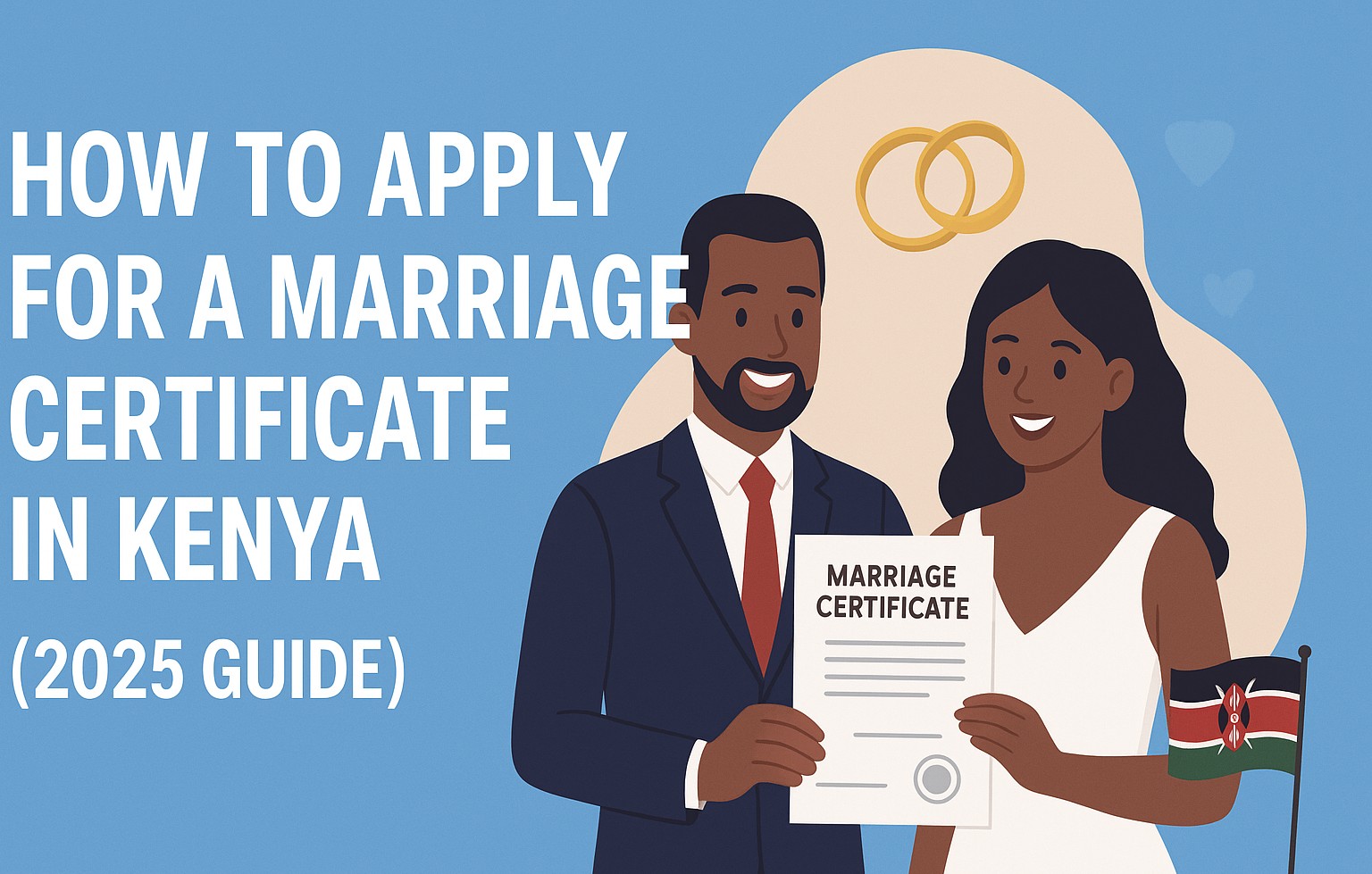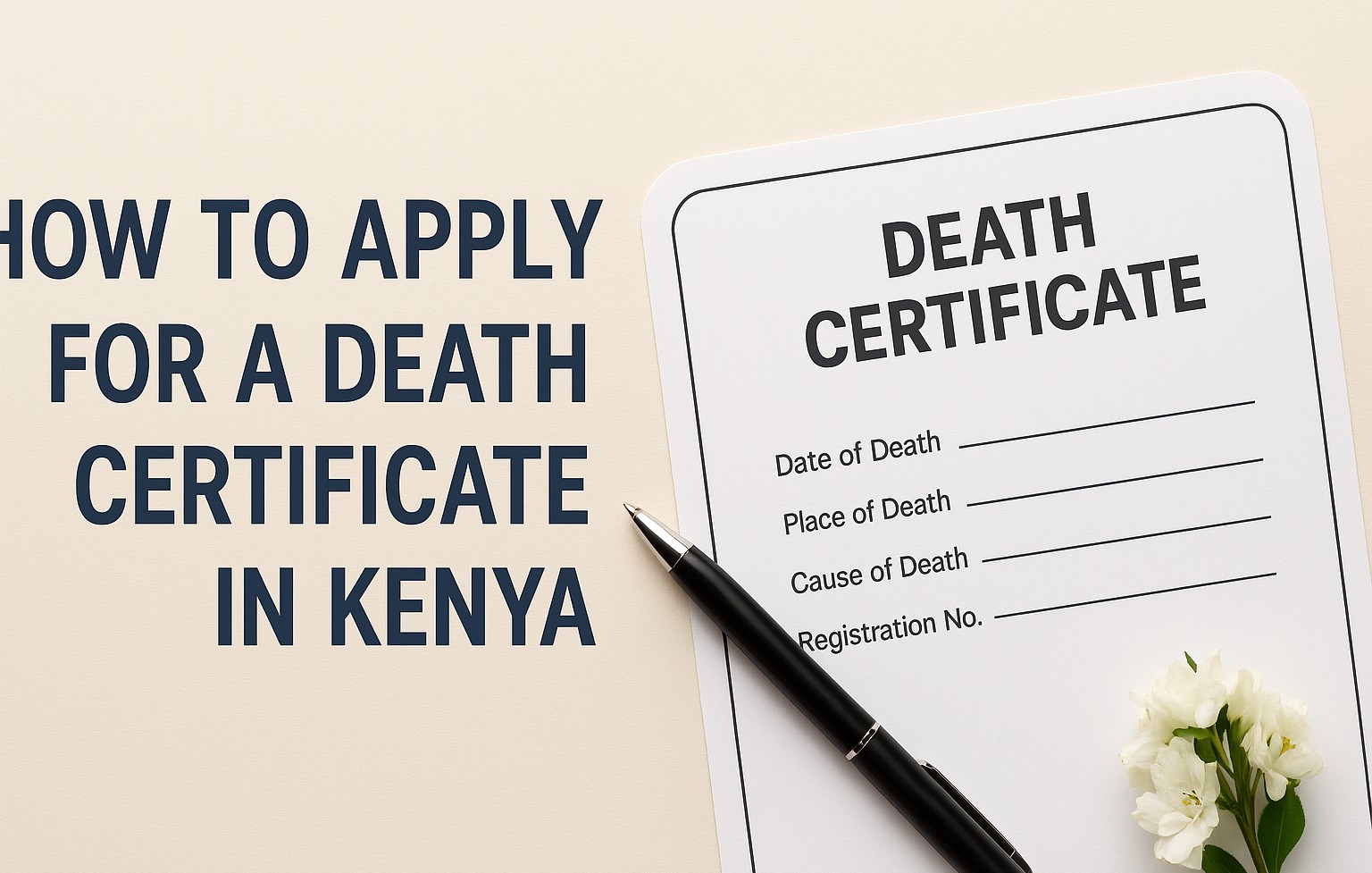

Titus Morebu
Author
How to Apply for a Police Clearance Certificate (Step-by-Step Guide)
Need a Police Clearance Certificate? Learn the full process, documents required, timelines, tips & links to government portals to make your application smooth and fast.
Introduction
Applying for a Police Clearance Certificate (PCC), often called a Certificate of Good Conduct, is a common requirement for jobs, travel, immigration, education, licensing, and volunteer work. 🌍 The exact process depends on your country (or state), but many elements are similar: registration, identification, fingerprinting, and verification. In this guide you’ll get a clear, up-to-date walkthrough (with useful tips) to help your application succeed.
What Is a Police Clearance Certificate?
A Police Clearance Certificate is an official document issued by a law enforcement agency, confirming that the applicant has (or does not have) a disclosable criminal record. It’s often valid only from its issue date. Many nations require fresh biometric data (fingerprints) with each application. 📄
Why You Might Need It
- Visa, immigration or residency permits
- Foreign employment or relocation
- Adoption, fostering, or child-related processes
- Professional licensing or certifications
- Volunteering, especially with vulnerable groups
- Some educational institutions or scholarship applications
Country-specific focus: Kenya’s PCC / Certificate of Good Conduct
Below is a detailed guide for applying in Kenya. If you're in another country, many of the steps will be similar; just replace with your local law enforcement agency or police department.
Eligibility & Who Can Apply
- Kenyan citizens aged 18+ (or minors 16–17 with guardian assistance)
- Foreign nationals who have lived in Kenya for six months or more
- Refugees in Kenya via the Refugee Affairs Secretariat
- Kenyan citizens living abroad (via Kenya missions) or foreigners abroad who need Kenyan record checks
Step-by-Step Application Process in Kenya
1. Register / Log In to eCitizen
Go to the DCI eCitizen portal and either log in or create a new account. Choose the “Police Clearance Certificate” / “Certificate of Good Conduct” service. Select whether the application is for yourself or (if under 18) through a parent/guardian account.
2. Fill the Application & Select Fingerprint Location
Complete personal details, contact info, mode of payment, and the location where your fingerprints will be captured (e.g. Huduma Centre, DCI HQ, or regional DCI office). Then submit the application.
3. Make Payment
Pay the prescribed fee via mobile money or other approved payment methods. Save & print your invoice. (Always verify current fee from official portal.)
4. Print C24 Form & Invoice
Download/print two (2) copies of the invoice and one copy of the application (C24 form) on A4 paper. You’ll need these at the fingerprinting center.
5. Visit Fingerprint Center / Huduma / DCI for Biometrics
Bring your ID (e.g. National ID or passport) and original documents. The C24 form and invoice will guide where to report. Your fingerprints and palm prints will be taken on the spot.
6. Processing & Notification
After biometrics, the DCI verifies records and conducts clearance checks. It typically takes **at least two weeks** (or longer) for processing, depending on backlog. You’ll receive an SMS or email when your certificate is ready.
7. Download or Collect the Certificate
Log into your eCitizen account, check status under “DCI – Police Clearance,” and if approved, download and print your certificate. Some countries or missions may require you to physically collect or legalize it.
Special Cases & Overseas Applications
- If you live outside Kenya, fingerprints must be taken at a local police station or authority, stamped and certified, and sent (by your country’s Kenyan mission) to DCI in Nairobi.
- Citizens abroad may also submit via Kenya High Commissions (e.g. London) — the waiting time may extend to ~8 weeks. Missions often require additional forms, cover letters, and documented proof of residency in Kenya.
- Applicants in diaspora must ensure document translation and certification if foreign languages or different formats are used.
Requirement Checklist
- Valid national ID or passport
- C24 application form & invoice copies
- Proof of immigration status or residence (for non-citizens)
- Cover letter (especially for overseas applications)
- Certified fingerprint cards from local police if abroad
- Payment receipt / proof of paid fee
Tips & Tricks for a Smooth Application ✅
- Ensure your fingerprints are done freshly—not reused from prior applications.
- Arrive early at biometric centers to avoid long queues.
- Double-check all fields in the eCitizen form; mistakes can delay processing.
- Monitor your application status; follow up if delayed beyond expected timeframe.
- If abroad, pick a police station recognized by your home country or the Kenyan mission. Confirm their stamping protocol.
- When submitting by post, always use trackable & registered mail and include self-addressed stamped envelope.
- Keep all backup copies of invoices, forms, emails, and tracking receipts.
Processing Time & Validity
The turnaround time varies by country and backlog. In Kenya, it can take from **2 to 4 weeks** (sometimes longer). When obtained abroad or through missions, it may take 1–2 months or more. Once issued, the certificate’s “clearance” is valid as of the issue date (i.e. it does **not** guarantee future clean record). Always check with your requesting authority whether your PCC must be “recent” (e.g. issued within past 3 or 6 months).
SEO & AI-Friendly Elements (for this blog structure)
This article uses clear headings and relevant keywords such as “apply for police clearance,” “certificate of good conduct,” and “fingerprint process.” Internal links to government portals (e.g. eCitizen, DCI) help credibility. Anchor text is descriptive, and external links open in new tabs. You’ll find only 1–3 high-authority external links to keep SEO safe but effective.
Conclusion
Getting a Police Clearance Certificate doesn’t have to be intimidating. Whether you apply locally or from abroad, follow the steps: register, fill, pay, get biometrics, and download or collect your certificate. With accurate documentation, early planning, and attention to instructions, you can complete your application efficiently. Best of luck! 👍
Gallery

Related Articles
3 articles
How to Apply for a KRA PIN in Kenya: Step-by-Step Guide (2025)
Get your KRA PIN fast and hassle-free. This guide shows how to apply (individual, non-individual, foreigners), requirements, tips & troubleshooting 🚀

How to Apply for a Marriage Certificate in Kenya (2025 Guide)
Step-by-step guide to applying for a legally recognized marriage certificate in Kenya — from notice to collection 💍

How to Apply for a Death Certificate in Kenya (Complete 2025 Guide)
Step-by-step process, fees, timelines, online & manual application for death certificates in Kenya—ensure your paperwork is accepted smoothly.